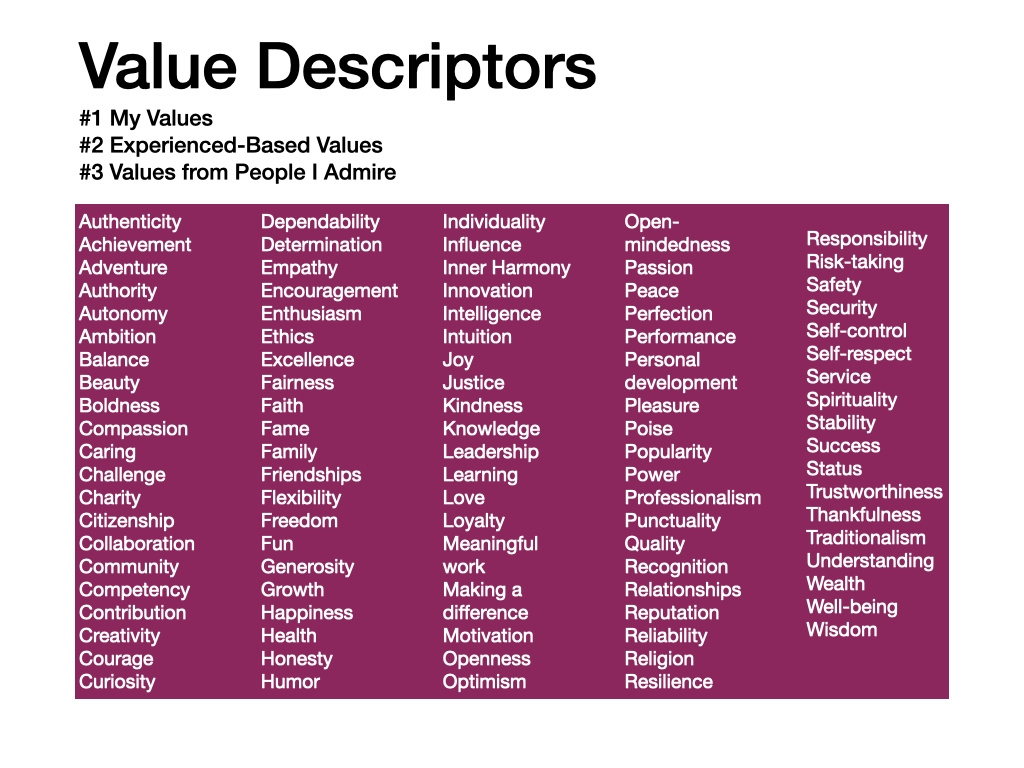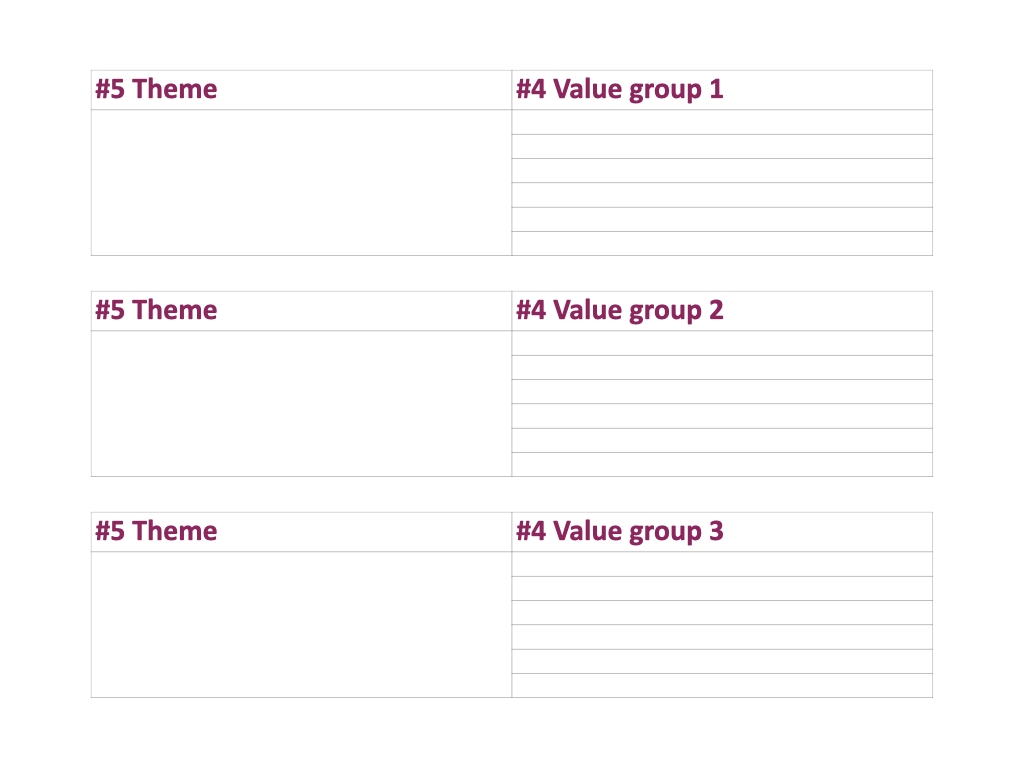This Values to Direction and Action exercise will help you obtain clarity around your values, placing you in the best position to live them (your values) with intentionality vs inertia.
It will be interesting to see how this impacts your decision process. I find it helpful to break this up over a few iterations. It helps me to come back with a refreshed pair of eyes, usually after I’ve reflected a bit, upon experiencing the world/circumstances around me through a heightened sense of self-awareness.
Another great ancillary exercise to do is to answer this question. Say you are 100 years old and you’ve lived a fulfilling life with no regrets. You know today you will peacefully die in your sleep, yet you are given a single gift of returning to your present self to give yourself one piece of advice. What is that advice?
OK, on to the values exercise. Here are the steps:
- My values — Look at the list below and add any additional values you can think of. Any values. Then review that list and copy YOUR values. The ones that really resonate with you, not the ones you think you should have. Be honest with yourself.
- Experience-based values — Consider your own experiences. When you did great, what values made this possible? When you messed up, what values did you ignore that caused it? Add those values to your list.
- Values from People I admire — Consider the people you most admire and the values you observe in them. For example, I admire Nelson Mandela, and the values I’ve always seen in him were his empathy, his desire to impact change, and forgiveness. Add those values to your list.
- Value group — Categorize values into related groups. Take all the values you’ve come up with and group them in a way that makes sense. For example, growth, learning, innovation, knowledge, boldness, etc. might all belong in one, related group.
- Central themes — Identify the central theme for each group. You will have one theme name for each group, under which there will be a list of values. A common theme for the example listed in #4 might be “Leaning In.”
- Sort the groups — Then sort the groups (by theme) in order of importance to you.
- Next is Intentionality and Action! This will help with your decision process of what to do, how, with whom, etc. This can take many shapes. The idea is to experience and reflect on these through your new values lens. Having a clear understanding of your values, combined with your passions and strength, gives rise to that which gets up in the morning: your purpose. This is where a certified coach can really help you materialize your purpose into action.

#4/5 Value Categories & Themes — Group the values you noted in #1, 2 and 3, above, and in a way that makes sense. Then come up with a name for a common theme for each category. Create as many themes as you find are necessary.

#6 Decide which one of these categories you wish to give 1st, 2nd, etc, priority, and rank-order, accordingly. Copy and paste in this order, below.
#7 Turning values to action. Below is a non-exhaustive list of questions with which you may want to start out. View these questions through the lens of your top themes, both from a personal and career perspective, as appropriate. If a question stumps you, skip it. These are not necessarily in a particular order.
- Tonight, when you go to sleep, a miracle happens, and you will wake up living your values. Since you were asleep, you don’t know this miracle happened. What are some things you are noticing? What are you doing differently? What is different about your environment, circumstances, dynamics, etc.?
- What does living your values begin to look like within one month?
- What are a few things you stop to believe (assumptions) about your career/ situation to allow you to experience life more positively?
- What are a few things you begin to believe (assumptions) about your career/situation to allow you to experience life more positively?
- What is one thing you need to stop doing immediately?
- What is one thing you need to start doing immediately?
- How can you go about holding yourself accountable?
- Whose feedback do you need to collect?
- What are the top 5 individuals you need to have on your personal board of directors? (These are people who you admire, respect, positive influence and complement you)
- What is the one thing that is disconnected which needs connecting?
- What is the elephant in the room? What’s your plan to address it?
- With whom do you need to “reset”? This is a situation where a relationship is strained or not ideal, for example?
- What habits do you have to form to support living your values?
To learn more about intentionally identifying and prioritizing your values, and acting on them, contact Nick for a consultation.

